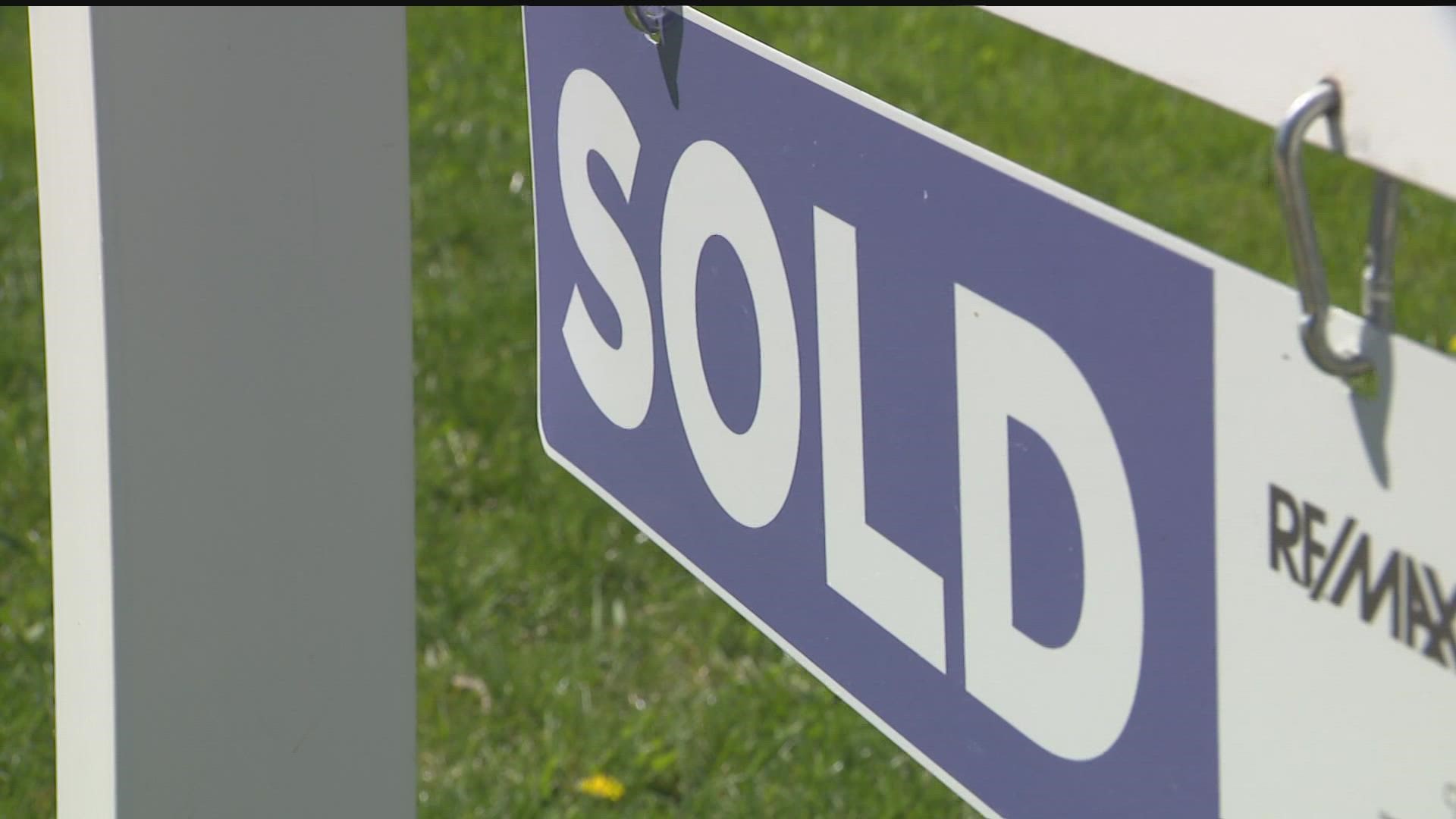MINNEAPOLIS — It's no secret the housing market is hopping right now in the Twin Cities, with the median home price surpassing $350,000 for the first time this spring.
But Long Doan, the founder and CEO of Minnesota-based Realty Group, said he's noticed a shift lately.
"Obviously, it's been hot, it's been really crazy, but it's starting to taper off a little bit. The interest rates have started to creep up," Doan said. "First-time homebuyers are going to be struggling with the increase in interest rates, because they've lost a lot of buying power."
Interest rates have been in the news lately, particularly on Wednesday, when the Federal Reserve implemented an expected rate hike of 0.5%. Interest rates, of course, are not the same thing as mortgage rates, but Fed policy certainly has an impact on the housing market.
"It's related, but not directly. It's not like the Fed raises a half and then the banks all go and raise a half," said Carol Schleif, the deputy chief investment officer for BMO Family Office. "A lot of the mortgage rates go off where the Treasury yields go, and the short-term Treasury yields really popped on the expectation that the Fed was going to start increasing."
For that reason, the current average 30-year mortgage rate — which has jumped more than two points in the past year to roughly 5.5% — already accounts for the Fed's widely anticipated rate increases. While a 30-year mortgage rate of more than 5% may be painful for those accustomed to such low rates in recent years, it's still much lower than the sky-high rates of the early 1980s, which reached at least 16%.
Still, even a two-point increase means hundreds of dollars more in monthly mortgage payments, depending on the home. That's an especially important consideration for young millennials, who are starting to enter the prime home-buying stage.
"It's going to cause people to step back and re-evaluate. If your mortgage rate is going to pay interest, you might have to evaluate how big a house you can have, how close versus going further out to get the same level of house," Schleif said. "The Fed is looking to slow activity some. They're looking to thread a very narrow needle, very delicate needle, between bringing growth rates down a little bit. There's a lot of people in the housing market that would like the activity to cool just enough so they don't have to bid over the asking price, and can get a reasonable shot at getting their dream home."
The Fed has indicated it may continue 0.5% increases at upcoming meetings in June and July, with more increases of some kind possible into the fall.
"The markets have already moved pretty swiftly in advance. Even if the Fed continues to raise, it's going to take a few raises to come up with where the markets have already gone," Schleif said. "So, hopefully, there's not as direct a connection there and I think you'll see Treasury markets do what they did today. Which is, on the Fed rate hike, the yields in the Treasury markets actually came down because we've moved so far in advance of where the Fed is now."

